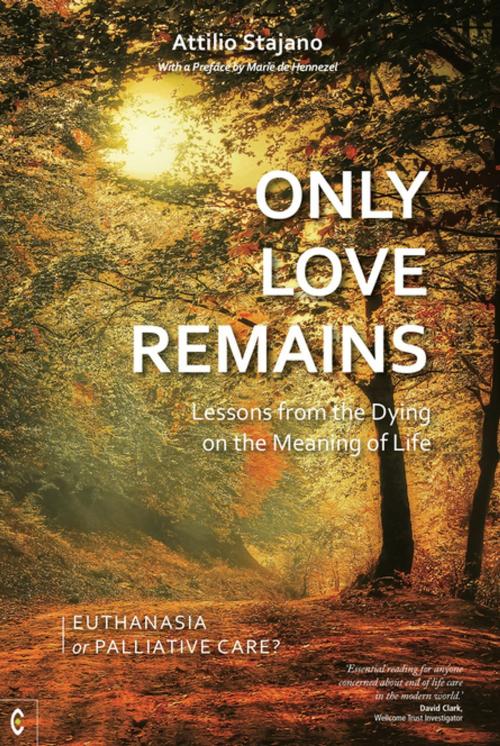Only Love Remains
Lessons from the Dying on the Meaning of Life - Euthanasia or Palliative Care?
Nonfiction, Health & Well Being, Medical, Patient Care, Pain Medicine, Self Help, Mental Health, Death, Grief, Bereavement| Author: | Attilio Stanjano | ISBN: | 9781905570683 |
| Publisher: | Rudolf Steiner Press | Publication: | December 18, 2015 |
| Imprint: | Clairview Books | Language: | English |
| Author: | Attilio Stanjano |
| ISBN: | 9781905570683 |
| Publisher: | Rudolf Steiner Press |
| Publication: | December 18, 2015 |
| Imprint: | Clairview Books |
| Language: | English |
What happens to the dying in the final days and weeks of their lives? What emotions come to the surface and what do they want to talk about? Attilio Stajano, a volunteer worker at the palliative care ward of a Brussels hospital, presents a series of deeply-moving personal encounters with seriously-ill patients. The dying, he discovers, have much to teach the living. Whilst their stories are all different, they share one thing in common: in the end, when all is said and done, only love remains...
How should we respond to the challenge of death? As a society and as individuals, we can choose to be patient and sensitive, giving dignity to those reaching the end of their lives – even when those lives appear to have no further value. The period leading to death can be full of profound experiences, telling us much about the meaning of life and the abiding nature of love. If we see the terminally-ill as an inconvenience, however, we forego the possibility of finding unexpected resources in ourselves: a tenderness, a touch, a readiness to assist that we did not know we were capable of.
Underlying this book is the momentous and very current debate over euthanasia. In a comprehensive appendix, the author reports on the provision of palliative care services and the laws governing euthanasia in European and English-speaking countries around the world, and the implications these have for the way we value and care for the dying.
What happens to the dying in the final days and weeks of their lives? What emotions come to the surface and what do they want to talk about? Attilio Stajano, a volunteer worker at the palliative care ward of a Brussels hospital, presents a series of deeply-moving personal encounters with seriously-ill patients. The dying, he discovers, have much to teach the living. Whilst their stories are all different, they share one thing in common: in the end, when all is said and done, only love remains...
How should we respond to the challenge of death? As a society and as individuals, we can choose to be patient and sensitive, giving dignity to those reaching the end of their lives – even when those lives appear to have no further value. The period leading to death can be full of profound experiences, telling us much about the meaning of life and the abiding nature of love. If we see the terminally-ill as an inconvenience, however, we forego the possibility of finding unexpected resources in ourselves: a tenderness, a touch, a readiness to assist that we did not know we were capable of.
Underlying this book is the momentous and very current debate over euthanasia. In a comprehensive appendix, the author reports on the provision of palliative care services and the laws governing euthanasia in European and English-speaking countries around the world, and the implications these have for the way we value and care for the dying.















